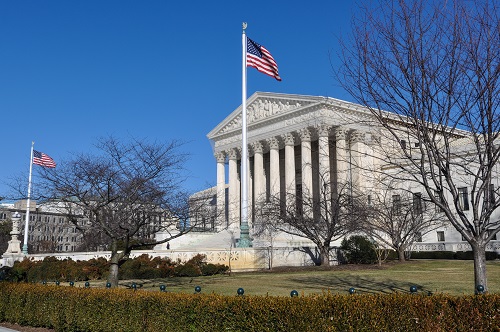Trump under investigation for possible violation of US Espionage Act
Donald Trump is under investigation for potentially mishandling information related to US national defence in violation of the Espionage Act, along with other possible violations related to the handling of government documents, according to the FBI’s warrant to search the former president’s home.
The search of Trump’s Mar-a-Lago estate on Monday, which triggered a fierce backlash among his political supporters, resulted in the retrieval of a trove of classified and highly sensitive documents related to national security, court documents released on Friday revealed.
The warrant, which was signed by a federal judge on August 5, called on the FBI to search Trump’s office as well as “all storage rooms” and premises used by the former president and his staff.
It also asked federal agents to seize “all physical documents and records constituting evidence, contraband, fruits of crime, and other items” that may have violated the law in any of three possible ways. The first related to “gathering, losing or transmitting defence information” under the Espionage Act — a serious crime relating to national security — while the second and third related to the removal, destruction, alteration or concealment of federal documents.
The court filing also contained a list of items retrieved by federal agents on Trump’s property. This included information relating to the “president of France”, the “grant of clemency” for Trump’s ally Roger Stone, binders of photos, a handwritten note — and, crucially, a variety of top secret and classified documents that require special government care.
The search warrant highlighted the seriousness of the investigation facing Trump. The FBI and Department of Justice did not make any additional comments beyond the court filing of the search warrant. The DoJ had called for the public release of the warrant, but Trump also eventually backed its release. The warrant was given to his lawyers on the day of the search.
The revelation that Trump was holding highly classified documents at his Mar-a-Lago estate — including at least one that applied to a foreign leader — will bolster the DoJ and FBI’s claims to have acted appropriately in their decision to search his home.
The Washington Post reported late on Thursday that some of the documents were related to nuclear weapons, though the FBI, DoJ and National Security Council declined to comment on that report.
In a series of posts on Truth Social on Friday, Trump mocked the search and any suggestion of wrongdoing as politically motivated persecution. “Nuclear weapons issue is a hoax, just like Russia, Russia, Russia was a hoax,” he wrote, referring to the probe led by special prosecutor Robert Mueller into Russian interference in the 2016 US presidential election while he was in office.
Trump also continued to blast the FBI — “Same sleazy people involved” — and said US law enforcement could have obtained the documents at Mar-a-Lago at any time. “ALL THEY HAD TO DO WAS ASK.”
However, prosecutors had been in talks for weeks with Trump and his team about the importance of producing the documents — to the point that they issued a subpoena for them earlier this year.
Even with the release of the search warrant and inventory list, the motivation behind the search at Mar-a-Lago will not be fully known until an affidavit in support of the warrant is made public, or any charges are brought by the federal prosecutors.
The DoJ had declined to comment on the investigation into Trump for three days after the search, sticking to its policy of not commenting on pending cases. But on Thursday attorney-general Merrick Garland made a short statement following criticism that he had offered no explanation of the move.
Garland did not offer any new details of the probe, but said he had personally approved the search and would not take such a step “lightly”. He also fiercely defended the work of the FBI and DoJ after they became the focus of vitriolic criticism from Trump and his allies on America’s hard right.
Adam Schiff, chair of the House intelligence committee and a California Democrat, said the documents produced on Friday suggested the search was justified.
“If reports are accurate and contained among these documents are some of the most highly classified information our government holds . . . then it would explain a great deal about why the department and the FBI took the step of obtaining a warrant to recover the documents,” he said. “Every day that information of such a classification sits in an unsecure location is a risk to our national security.”
But Republicans remained dubious. “Where’s the affidavit? We still need to see the affidavit,” tweeted Lindsey Graham, the Republican senator from South Carolina.








